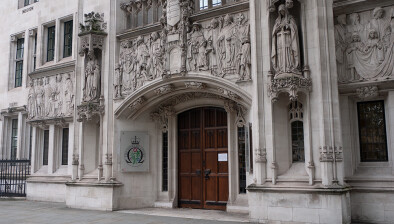High Court: Family law abuse of privilege may have costs orders implications

Andrew McKeown BL
The High Court has granted a divorce and made a number of orders in relation to a family home, commenting that an abuse of privilege may have costs implications.

About this case:
- Citation:[2020] IEHC 611
- Judgment:
- Court:High Court
- Judge:Mr Justice Max Barrett
Background
The proceedings began as a cross-appeal of the financial elements of a July 2019 Circuit Court separation order. The parties asked that the hearing be utilised for the granting of a decree of divorce. Mr Justice Max Barrett acceded to that request, utilising this “cart before horse” approach, as there was no point in dragging the parties, short in funds, back for another hearing.
As the proceedings “morphed” into divorce proceedings, the Family Law (Divorce) Act 1996 s.20(2)(i), required the court to have regard to the conduct of the spouses. The judge found reading about Mr Y’s alleged incidents of violence towards Ms Z “to be disturbing, even frightening”.
Alleged conduct
It was alleged that Mr Y kicked Ms Z in a stitched wound following the delivery of one of their children, that he thumped her and spat in her face. She claimed he threw a mobile phone at her head, and that that he threatened to kill her. Ms Z claimed he threatened to have her committed to a mental hospital on the basis of a long-ago episode of depression, that he threatened to kill himself, expressing a wish that the family home would burn down, and that he was demeaning to her in front of others.
He claimed these were untrue and exaggerated, and that her behaviour was challenging. The court reiterated, as it has in a number of recent judgments, that there is never an excuse for domestic violence. The judge found her claims could not all be untrue; there was photographic evidence of bruising, and documentary evidence in the form of a text Mr Y sent “I’m f***ed up and I’m sorry for making your life hell”). This text apology, the court said, was perturbing, pointing to a man who considers that he is not fully well and ought to seek professional assistance.
The court considered that there was already a court barring order. Ms Z fled the family home and moved ten times in nine months with her children, spending some of that time in a women’s refuge, “what woman would put herself and two young children through such misery if she was not genuinely living in fear of her husband?”
Mr Y was a “well-presented and articulate man in a good job that pays well above the average industrial wage and who does not appear from the evidence to have any addiction problems that might explain (they would not excuse) his past behaviour towards Ms Z.” There was a psychological toll on at least one of the children, who attends play therapy. Ms Z said that now that she and the children are back in the family home, they should not be moved again.
“To his discredit” Mr Y sought to disparage Ms Z by reference to her mental health, suggesting that she behaved erratically because she suffers from bipolar disorder. Her GP sad that she had in fact had a depressive episode many years ago, but had been very well for over ten years. The court said that mental ill health was like any other form of ill health, and that it should be a “cause for understanding on the part of the other spouse, not abuse by way of averment.”
The court warned “for the third time in recent weeks” that the privilege enjoyed by parties in court proceedings is not there to facilitate one party ‘having a go’ at another under the protective cloak of that privilege. When such abuse occurs “parties may find that their actions go towards the issue of costs orders”.
Mr Y was in breach of the maintenance order. It was not appropriate that he would deprive Ms Z and his children, of necessary maintenance while continuing to pay for his sports TV subscription, his social expenses, his gym membership, his take-away food orders, etc. It was his moral duty, as countless parents do every day, to place his children’s interests before his own. He also had a legal duty to obey the court and its orders.
Conclusion
The court was satisfied that the provisions of the Family Law (Divorce) Act 1996 s.5(1) were met. On proper provision, the court noted its observations in M v S [2020] IEHC 562. A decree of divorce was granted.
Mr Y obtained a sale order for the family home in the Circuit Court, to enable him to buy a new house for himself and his new partner. Mr Justice Barrett said Ms Z was in a “profession which, though esteemed by the public, does not get very well recompensed.” She does not earn enough to get a house in the area where her children attend creche and school, and they would therefore have to leave the family home to rented property, “with all the uncertainties that life in rental accommodation brings, essentially so that Mr Y can move from rental accommodation to his own property with his new partner and child.” The court was “unsympathetic” to an application that would see an abused wife and her two children, one receiving therapy, cast into the uncertainty “in order that a previously abusive husband can ensconce himself in a new home of his own.”
The judge will hear from the parties before final orders on the timeline for sale of the family home. Ms Z will receive 80 per cent of the proceeds. The court said that any proceeds which Mr Y receives from the sale should offset any mortgage costs met solely by him, and that if there is any deficiency, it can be treated as a “Wachtel-informed deficiency” contemplated, countenanced and sanctioned by the court to reflect Mr Y’s historically “obvious and gross” behaviour towards Ms Z.








